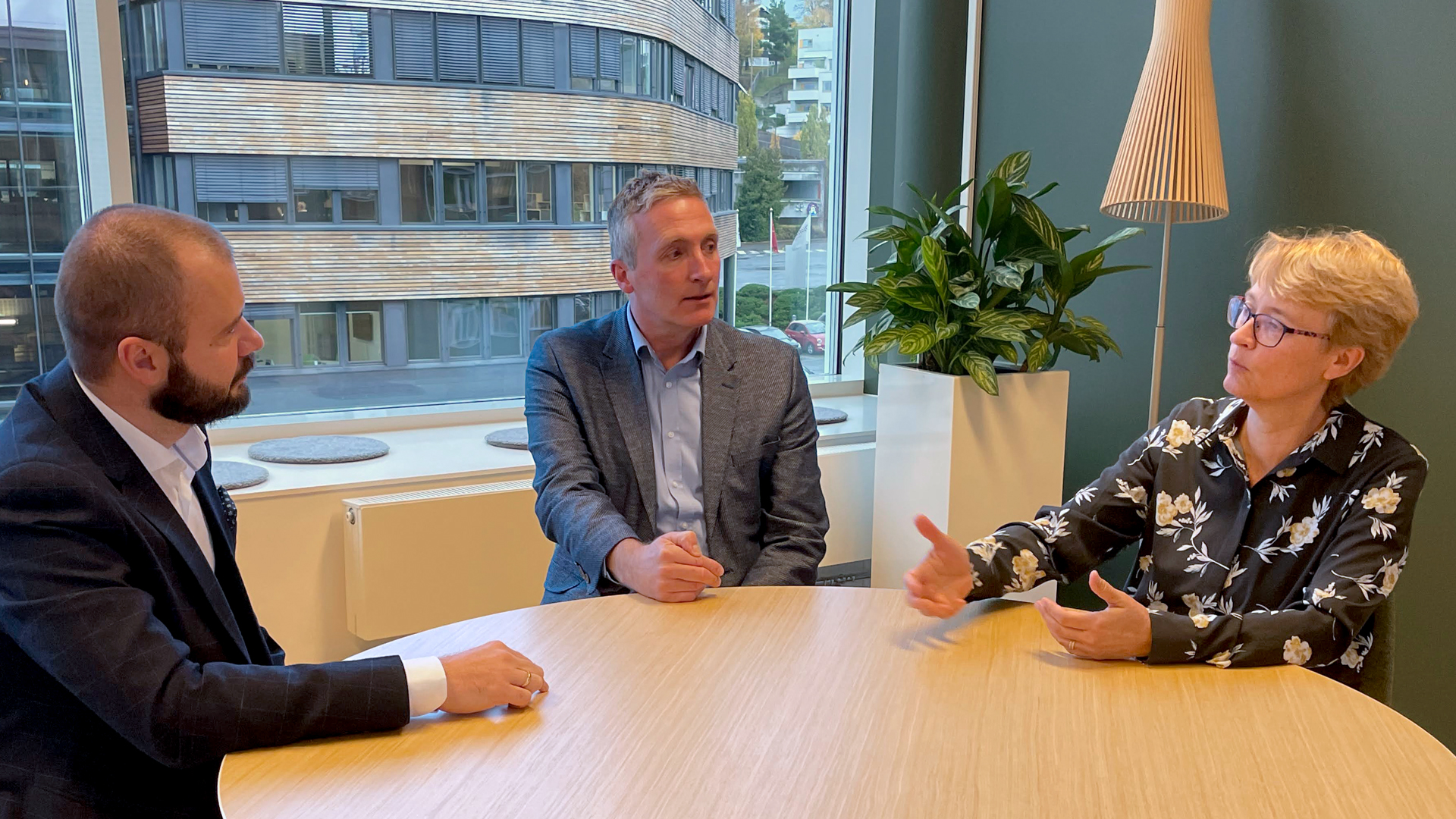The energy industry has 10 000 days to reach UN net-zero targets. PGS believes it can help in achieving that challenging goal.
The energy industry has recognized that it needs to take action to address the fact that the world is on a dangerous path. UN Secretary-General, Guterres, has described the world as being, “on a catastrophic pathway to 2.7 degrees of heating,” says Berit Osnes.
"There is a call for action that almost everyone feels on a personal level and in a corporate setting. I and the management of PGS share a desire to enable the energy transition, and we believe that our long-term corporate survival will involve being a part of this. Energy security through the transition will require an energy mix and PGS will play a role in the total energy landscape," she underlines.
Artem Lytkin agrees. "As much as 80% of energy today comes from fossil fuels, and this is not going to change overnight. So, we will probably see two trends: reducing the carbon footprint of fossil energy generation and accelerating the development of renewable energy generation," he says, adding:
"Opportunities exist for energy companies and PGS to help decarbonize fossil energy production, with carbon capture, use, and storage (CCUS). We can also help accelerate the production of renewable energy with offshore wind solutions."

New Challenges vs. Services PGS Can Deliver
Allan McKay maps a couple of general challenges that Artem and Berit have touched on against what geophysics can deliver, "First, we know the energy transition will take place, but there are indications it’s not occurring fast enough, and CCUS needs to accelerate if it is to take a meaningful role. The PGS global data library, experience, and track record over 30 years can be brought to bear to enable the rapid adoption of technology for carbon storage."
"We have plenty of know-how in PGS, including our progress in digitalization, " he adds. "However, we can’t do it alone: partnerships and collaborations will be required. There is a lot of interesting technology in development, albeit at early stages, for example, in the automation of data acquisition, processing, and how we analyze and interpret data. PGS is investing in cloud initiatives, from fleet management to automation of imaging workflows. These will be some of the essential technology ingredients in tackling the challenges that Berit and Artem are highlighting, such as ensuring that CCUS can be rapidly adopted as an energy transition solution."
Existing Competence vs. New Energy Solutions
Artem underlines that the new energy industry will have to stand on the shoulders of the existing industry to build new solutions.
"A lot of competence learned from oil and gas will provide the foundation for new solutions for carbon storage," he says. "For example, understanding reservoir risks and how to monitor them. Techniques that were developed for reservoir monitoring and shallow hazard mapping will allow us to evolve methods to store CO2 safely underground, plan wind farms, and evaluate geothermal potential. The logistics of offshore wind energy is further out from the technical expertise of the oil and gas sector, but it has a significant component related to offshore construction. Here too subsurface risks can be measured and better understood using geophysical methods."
Berit agrees, "We must capitalize on oil and gas competence, but the industry also has to find new solutions. There needs to be an element of new people doing it in new ways. We cannot just take the oil company workflows and apply them in the new energy domain. This is where digitalization comes into play and creates an opportunity for young people to enter the energy arena and feel good about it. That is a very positive thing for geoscience in the energy industry. We have been concerned about recruiting; this enables us to find new positives for geoscience, subsurface knowledge, and digital proficiency," she says.
Traditional Economics vs. New Energy Margins
Berit observes that with rising energy prices and potential shortages of resources, energy security must be a key challenge for young people. "If we want to transition, we need new solutions," she says.
"I like to think of energy economics in terms of relative energy density," explains Artem. "Fossils have the greatest energy density, so the value of the produced commodity is quite high. Harvesting renewable energy will be more challenging as energy densities are lower. To compete with energy production from fossil fuels, the efficiency of the renewable value chain must be higher because the underlying value of the produced commodity is lower."
"We can’t change the physics, the density in your analogy," says Berit, "but PGS can help improve efficiency in the value chain. No margin can be wasted."
Allan adds the technology angle. "One of the ways we can learn from the past to build the future is to be far more data-driven in our approach. For example, for carbon storage, we need subsurface data and reservoir characterization to understand and mitigate risk. Energy companies will need to be able to identify and develop CO2 storage sites with as few wells as possible, and that implies increased reliance on subsurface data and knowledge. In the wind sector, the current project scale is not moving the needle in terms of energy supply. Reducing inefficiencies will require solid investigation before site development, remote sensing, and a variety of geophysics solutions," he says.
Cost vs. Sustainability
Artem has a point for those who ask if we can make sustainable energy more profitable, "It makes it sound like there is an alternative. There isn’t," he says. "What we need to ask is, how can we make sustainable energy as affordable as possible – by efficiently reducing the CO2 footprint of fossil-based energy and using renewables. We potentially move towards energy that is more expensive to produce. This is both a huge challenge and an opportunity for industry, policymakers, and financial institutions to find solutions."
Let's Build a New Value Chain
"The energy industry needs a new value chain, and there is an opportunity for nations to encourage collaboration clusters to bring this about. Norway, for example, has a tradition of allying industry players, financial institutions, and policymakers to achieve strategic industrial goals. Such collaboration across the board to reach net-zero targets by reducing the carbon footprint of fossil energy production and building renewables in parallel can provide an opportunity to assemble a new value chain for the continental shelf that evolves new technology and rethinks commercial models. PGS can service both of these important areas, and we’re ready to collaborate and discuss how we can contribute," says Artem.
"When you start to optimize a value chain, you start within your boundaries, within your envelope on the chain, by reducing cost and increasing efficiency and effectiveness, but still taking the same products from your suppliers and delivering the same output to clients. But that gives very limited scope for optimization," he explains.
"The next step is to change the boundary conditions. We need to accept that we will do things we have not done before and stop doing certain things. Collaboration is about reassembling the value chain and redefining those boundary conditions. To collaborate successfully, we cannot decide what our suppliers and customers will do. We need to discuss what we can give and who does what."
Our aim is innovation, and that means inviting partners and third parties into the arena to contribute. Let's talk!
Find Out More
Find Out More
Contact a PGS expert
If you have questions related to our New Energy business please send us an email.

